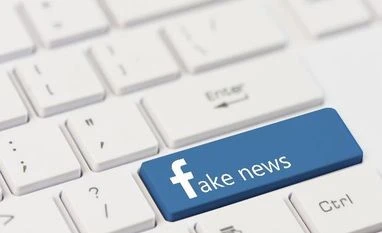As many as 1,662 uniform resource locators (URLs) or posts on social media were blocked over 18 months ending June 2018, Ravi Shankar Prasad, minister for electronics and information technology, told the Rajya Sabha (Parliament’s upper house) on August 3, 2018, as part of an explanation on combating fake news.
“Recently, it has come to the attention of the government of India that a number of disturbing instances causing loss of innocent lives have taken place in various parts of the country,” RS Prasad said in his reply on the issue of misuse of social media and fake news. “These are deeply painful and regrettable, as well as a matter of deep concern for the government.”
Facebook blocked the most (956 or 58 per cent) of URLs, under section 69A of the Information Technology (IT) Act, 2000, followed by Twitter (25 per cent) and YouTube (9 per cent).
Section 69A of the IT Act, 2000 says websites/pages can be blocked in “defence of India”, its sovereignty, security and integrity, foreign relations, public order and to prevent “incitement to the commission of any cognizable offence relating to above”, Prasad said.
The “intermediary” or the website or page that fails to comply with the law can be punished with imprisonment up to seven years and a fine.
Of 2,190 million Facebook users across the world, 9 per cent were Indians as of March 2018; Indians account for 8 per cent of the total number of Twitter users globally and 4 per cent of YouTube’s. They also accounted for 13 per cent (200 million) of WhatsApp’s user base as of February 2017.
In July 2018, Facebook removed the news page of the right-wing fake news website Postcard News, which had over 500,000 followers, on grounds of posting content that violated intellectual property rights, including copyright and trademark, BOOM reported on July 16, 2018.
Co-founder of Postcard news, Mahesh Hegde, was arrested “on charges of spreading fake and communally sensitive news” in March 2018, The Hindu reported on March 30, 2018.
New, inexperienced smartphone users bearers of fake news
Spread of fake news has been “pernicious in India” with new and inexperienced smartphone users sending billions of WhatsApp messages every day, the Washington Post reported on July 2, 2018.
Internet users in India increased 324 per cent over six years to 2016, from 92 million to 390 million, compared to 60 per cent in China to 750 million, 20 per cent in Japan to 120, 14 per cent in the US to 250 million and 63 per cent in Brazil to 130 million over the same period, according to data from International Telecommunication Union, a United Nations agency.
India had 473 million wireless internet subscribers in India on March 2018, of which 30 per cent (144 million) were in rural areas and the rest (329 million) in urban areas.
As many as 33 people have been killed in 69 mob attacks related to rumours of child lifting since January 2017, IndiaSpend reported on July 9, 2018. About 77 per cent of these were attributed to fake news spread through social media. WhatsApp featured as the leading rumour source, accounting for 28 per cent or 19 of the cases.
To curb the spread of “misinformation”, the government has issued advisories to social-media platforms to prevent the proliferation of fake news.
Mallapur is an analyst with IndiaSpend.
This article was reprinted with permission from IndiaSpend.org. Read the original article here.
To read the full story, Subscribe Now at just Rs 249 a month
Already a subscriber? Log in
Subscribe To BS Premium
₹249
Renews automatically
₹1699₹1999
Opt for auto renewal and save Rs. 300 Renews automatically
₹1999
What you get on BS Premium?
-
Unlock 30+ premium stories daily hand-picked by our editors, across devices on browser and app.
-
Pick your favourite companies, get a daily email with all news updates on them.
Full access to our intuitive epaper - clip, save, share articles from any device; newspaper archives from 2006.
Preferential invites to Business Standard events.
Curated newsletters on markets, personal finance, policy & politics, start-ups, technology, and more.
Need More Information - write to us at assist@bsmail.in



)